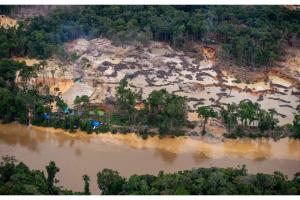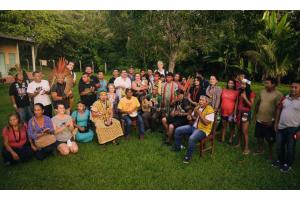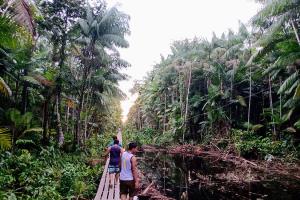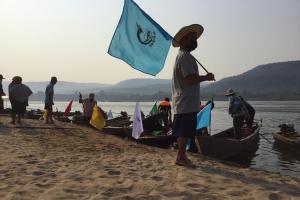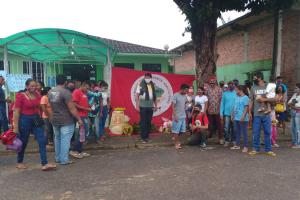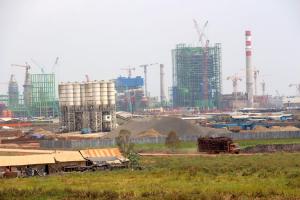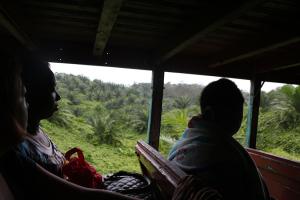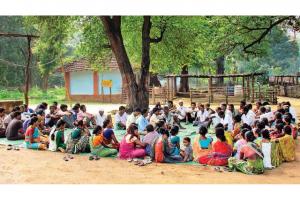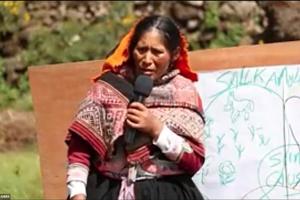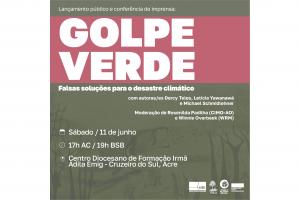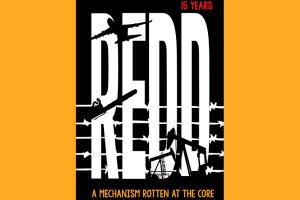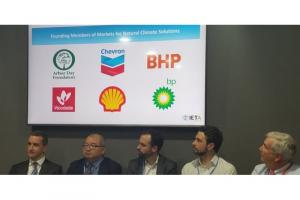The discourse of the 'energy transition' is usually used to justify the expansion of the mineral extractive frontier. However, in addition to local pollution and impacts on forests and people, the extraction and processing of minerals require large quantities of water, with long-lasting and far-reaching effects on territories.
The Green Economy
The Green Economy is a tactic used to “clean up” the image of corporations rather than address corporate capture and capitalism as the true drivers of deforestation. False solutions promoted under the Green Economy include certification, sustainable forest management, ecosystem services, REDD+, the bioeconomy, nature-based climate solutions, and zero net deforestation. Rather than stopping it, these “solutions” support corporate-driven destruction that is causing a deep social and ecological crisis.
Bulletin articles
12 September 2022
Declarations
22 June 2022
We, members of the Manchineri, Apurinã, Katukina Noke Kuí, Jamamadí, Jaminawa, Sharanawa, Huni Kuim, Shanenawa, Ashaninka, Madiha, Kuntanawa, Jaminawa-Arara, Jaminawa do Igarapé Preto, Marubo, Arara, Apolima-Arara, Kanoé Rondonia, Oro Wari Rondonia, Bororo, Nukini and Nawa peoples, farmers, extractive rural workers, and representatives of the organizations Indigenist Missionary Council (CIMI), World Rainforest Movement (WRM), Friends of the Earth Brazil, Sempre Viva Feminist Organization (SOF), World March of Women (WMW), Landless Rural Workers’ Movement (MST-RO) and Small Farmers’ Movement
Bulletin articles
16 June 2022
Fossil fuels are at the root of the climate chaos – but the conditions for this crisis have been created by the interconnections and dependencies between colonialism, racism, patriarchy and class exploitation. To address climate chaos, therefore, it is necessary to address the unequal relationships of power upon which a fossil-fuel dependent capitalism is based.
Bulletin articles
16 June 2022
The nearly 5,000 km. of the Mekong River, which crosses six countries and sustains the lives and livelihoods of millions, is under severe threat due to the on-going construction of large scale dams. Communities are resisting what could be the final struggle to save some of the remaining parts of the River… of their lives.
Bulletin articles
16 June 2022
In Brazil, oil palm plantations are expanding rapidly, mainly in the Amazonian state of Pará. BBF (Brasil BioFuels), the largest oil palm company in Brazil, stands accused of environmental crimes and violence against indigenous, quilombola and peasant communities such as Virgílio Serrão Sacramento, a community linked to the Small Farmers’ Movement (MPA).
Bulletin articles
16 June 2022
More than 10 million hectares in Indonesia are controlled by the pulp and paper industry, mainly by two giant corporations: APP and APRIL. Despite the companies’ commitments to protect forests and peatland, both keep being associated with deforestation, forest fires and to a business model of violence, criminalization and dispossession of forest communities. (Available in Bahasa Indonesia)
Bulletin articles
16 June 2022
Communities resisting the impunity and impacts of oil palm growers in Ecuador: Cases from Esmeraldas
There are currently 270,000 hectares of oil palm plantations in Ecuador. The resistance processes of the communities of La Chiquita, Guadualito and Barranquilla de San Javier in the region of Esmeraldas continue to generate outrage and solidarity among other communities, and internationally.
Bulletin articles
16 June 2022
The ‘conservation’ model in India continues to enclose forests and evict communities in a deliberate attempt to undermine and scuttle the Forest Rights Act (FRA) - a landmark legislation that strengthens the authority of communities over their forests. Meanwhile, companies are allowed to destroy forests, even inside the conservation areas.
Other information
16 June 2022
The overarching goal of this series coordinated by the Swift foundation and the First Nations Development Institute is the search of new ways of pleading for clarity and using appropriate language to ensure respectful and positive relationships with indigenous peoples and marginalized groups and avoid terms that may be discriminatory or offensive or the source of strategies that misuse their heritage and turn into another means of assimilation and displacement.
Action alerts
10 June 2022
(Only in Portuguese) Será realizada no dia 11 de junho em Cruzeiro do Sul, Acre, Brasil
Articles
29 April 2022
These readings are part of the publication "15 Years of REDD: A Mechanism Rotten at the Core"
Articles
29 April 2022
Offsetting is a dangerous distraction from the root causes of the climate crisis. This false solution is the flip side to the oil’s industry initial reaction to climate science: denial. Big Polluters did not invent carbon trading. But they have supported, heavily lobbied for and promoted carbon trading.
